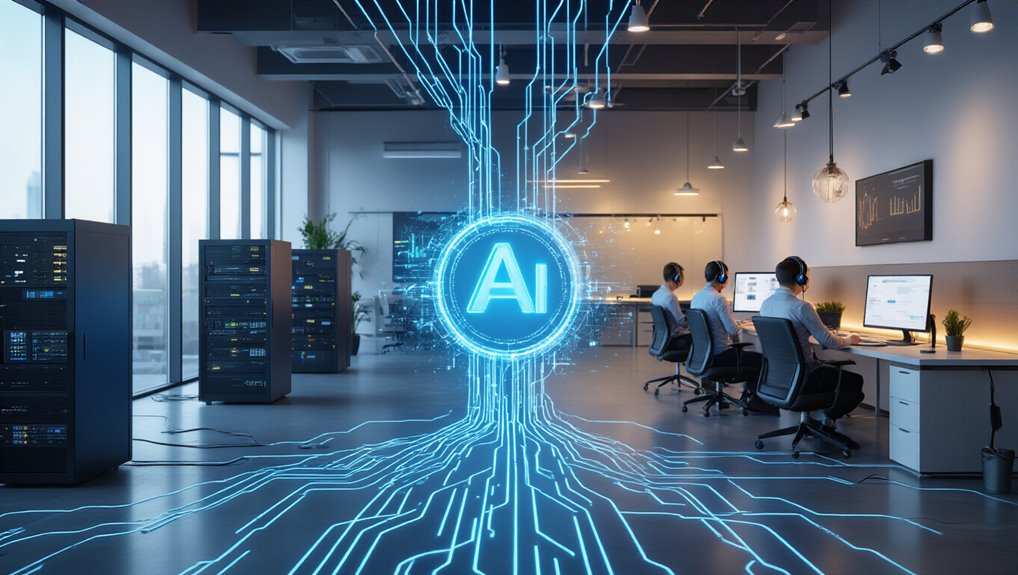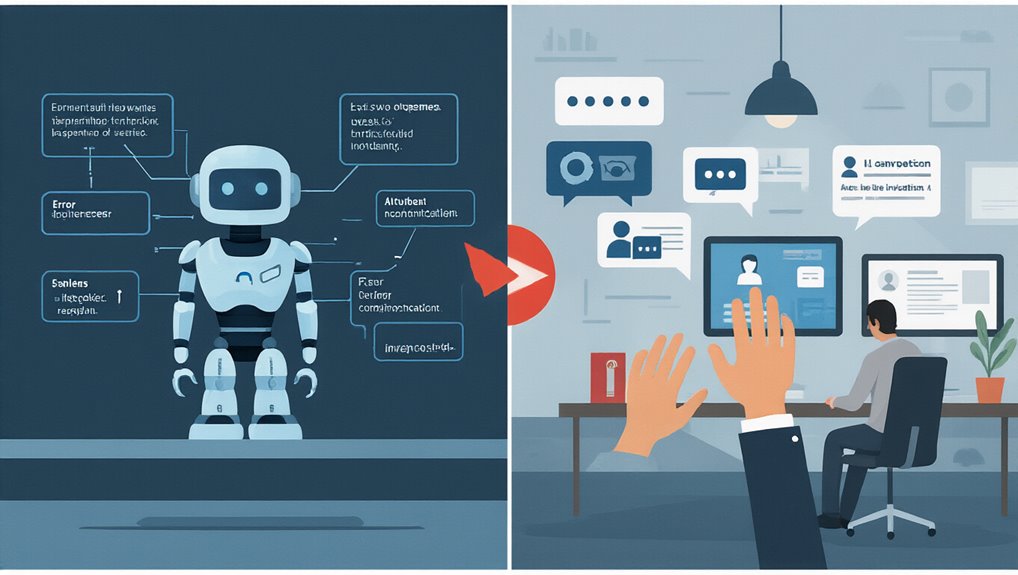How are contact centers steering through the complex landscape of artificial intelligence implementation? The integration of AI technologies presents both opportunities and challenges for contact center operations. Organizations face a multitude of AI options—chatbots, voice recognition systems, analytics platforms, and machine learning tools—each requiring careful evaluation against specific business needs. Success depends on thorough needs assessment and market research to align AI capabilities with organizational objectives.
Navigating AI implementation requires careful evaluation of technologies against specific business objectives to maximize contact center success.
The foundation of effective AI deployment rests on data quality and integration. With 70-85% of AI failures stemming from poor data management, contact centers must prioritize data cleanup and system integration. Legacy systems require modernization through AI-ready platforms while maintaining compliance with privacy regulations. Consulting with data governance experts helps establish proper frameworks that support AI performance and regulatory adherence. Many organizations leverage iPaaS solutions to facilitate seamless data transformation between disparate systems. Regular monitoring and updating of data ensures AI systems continue to deliver accurate customer experiences.
When AI enters the contact center, HR and IT departments must collaborate rather than compete. This partnership is essential for addressing the significant workforce transitions required. Teams need upskilling to effectively manage and interpret AI tools, with supervisors and agents learning new competencies. Organizations can overcome skill gaps through:
- Targeted training programs
- AI-driven learning platforms
- Transparent communication about AI’s role
- Collaboration with external AI consultants
The balance between automation and human touch represents a critical consideration. While AI handles routine queries efficiently, human agents must remain available for complex issues requiring empathy and nuanced understanding. Customers quickly become frustrated with overly robotic interactions, making this balance essential for service quality. Starting with small pilot projects rather than large-scale deployments allows organizations to test, adjust, and prove value before broader implementation.
Cost considerations play a significant role in AI implementation decisions. The substantial upfront investment in specialized software, hardware, and expertise must be weighed against potential long-term efficiency gains. Organizations benefit from pilot testing before full deployment, allowing them to identify integration issues and refine applications.
Contact centers that successfully navigate these challenges create a productive fusion between HR and IT departments, resulting in AI implementations that enhance both operational efficiency and customer satisfaction. This collaborative approach transforms potential departmental face-offs into powerful partnerships that drive contact center performance.









